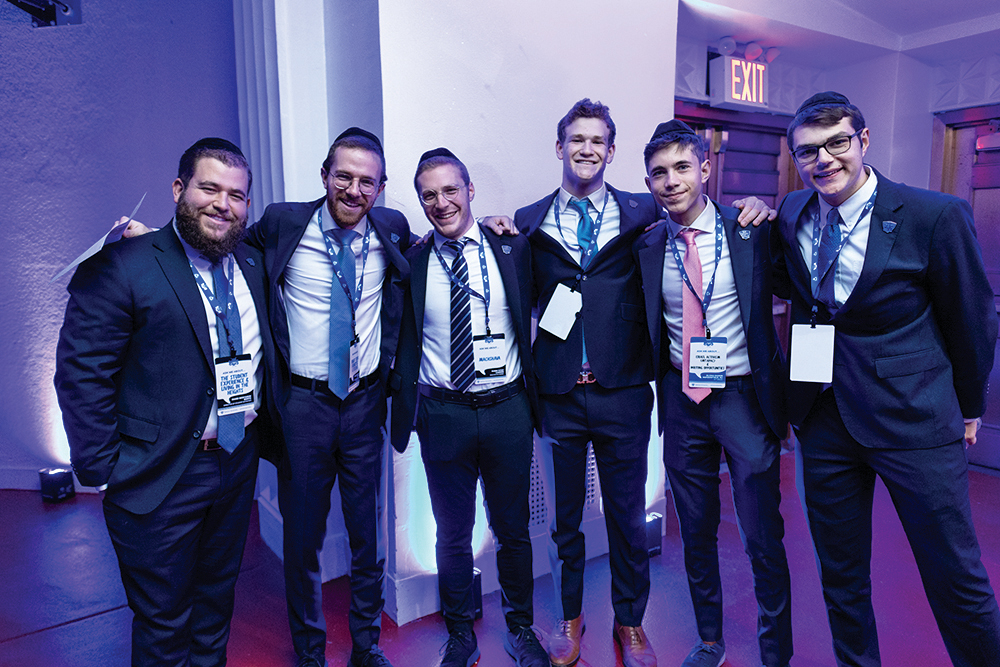Chanukah is a magical time, full of whimsy, togetherness and memory-making pastimes. Chanukah is a favorite for many; the food is delicious, the company is plentiful, and the uninterrupted time with family is irreplaceable.
However, when you are trying to co-parent with a narcissist, Chanukah can take an especially stressful tone, because it presents an opportunity for the narcissist to engage and create chaos surrounding what should be a joyous time for all.
Narcissistic behavior is one of the character traps Dr. Mark Banschick explains in his article “Malignant Divorce.” According to him, “the narcissist is completely self-serving and selfish.”
The following are some hallmarks of narcissistic communicators, according to Marie-France Hirigoyen in ”Stalking the Soul: Emotional Abuse and the Erosion of Identity,” and the potential problems that may arise in co-parenting relationships as a result:
1. Refusal of direct communication. The narcissist refuses to have direct communication about the child—there is never direct communication because he/she just simply doesn’t discuss things. Abusive individuals evade direct questions when asked.
2. Distortion of language. The narcissist uses innuendo, unexpressed reproach or veiled threats to communicate. The tone is oftentimes flat and cold. Victims often describe the change in tone before the aggression strikes, describing it as “white.”
3. Lies. Hirigoyen states that “[r]ather than using a direct lie, the abuser initially employs a mix of innuendo and unspoken hints to create a misunderstanding, which he will subsequently exploit to his advantage.” Lying is pervasive among abusive narcissists.
4. Use of sarcasm, ridicule, contempt. The narcissist uses ridicule to create a position of knowing. Embarrassing his or her former spouse can become the sole goal and objective.
5. Use of paradox. Often, a narcissist will say something verbally and express the opposite nonverbally. One way to do that is to cast doubt into innocuous elements of daily life. For example: “I am so concerned about our child having the flu. I wish you would dress him for the weather and feed him healthy foods. Maybe then he wouldn’t be so sick all the time.” These feigned expressions of concern, without escalating tone of voice, can lead to doubt among even the most secure.
6. Divide and conquer. The narcissist is adept at pitting people against each other by either insinuating doubt, revealing what one person said about the other, or by lying to incite people to become adversarial. This can result in alienation between parent and child or conflict between the children themselves.
7. The imposition of power. The goal of the abusive narcissist is to dominate. The domination is typically underhanded and denied, often masked behind gentleness and benevolence.
Because narcissists tend to communicate in a dysfunctional manner, attempting to reach any kind of resolution on holiday time-sharing can sometimes prove impossible. But just because you are dealing with a narcissistic co-parent does not mean you are powerless to mitigate any damage he or she may cause to you or your children.
Here is some tried and true advice that I regularly impart to my own clients for addressing holiday co-parenting issues:
1. Plan early. Narcissists thrive on creating last-minute chaos surrounding your family gatherings. Broaching the issue early will give you time to hash out details and involve your lawyer, if necessary.
2. Keep your communication in writing. Email or text. Avoid phone calls. This will give you the evidence that is required if you need to get your lawyer involved, or if you need to go to court or beit din to resolve the issue.
3. Stick to the schedule. If you have a divorce agreement, it should provide who gets the children when. While in ordinary cases I would recommend abundant flexibility with children’s schedules (depending on their needs, of course), providing flexibility to the narcissist signals to them that they can take advantage of you. It is a sign of weakness to them, that they will capitalize on time and again. Stay strong, even if it’s difficult. A narcissist cannot be treated as a normal co-parent in this regard.
4. Do not engage. Narcissists love to engage with you because it signals to them that they continue to have a hold on you. Don’t fall into the trap. Let the narcissist’s rhetoric wash over you. Focus on providing a loving and healthy environment for your children.
5. Have your team ready. Know that when you’re co-parenting with a narcissist, you may end up in a stalemate. You’ll need backup, sometimes quickly as the holiday approaches without a resolution. Family therapists, parent coordinators and your lawyer should be aware of the issues as soon as they crop up so that they can spring into action if the situation persists.
Many of these tips prove helpful even if you’re not dealing with a narcissist, but just have a less-than-ideal relationship with your former spouse. Remember: The less conflict your children witness between their parents, the better they will fare in a divorce situation. Be sure to implement these sanity-saving strategies early and often.
As always, if you are facing an unresolvable co-parenting conflict, talk to a lawyer about how you can better manage your relationship for the sake of your children.
Freilichen Chanukah!
Eliana Baer is a partner in the family law practice group of Fox Rothschild LLP. She practices in Fox Rothschild’s Princeton, New Jersey office and focuses her state-wide practice on representing clients on issues relating to divorce, equitable distribution, support, custody, adoption, domestic violence, premarital agreements and Appellate Practice.













